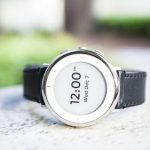 The growing value of data in healthcare is a topic I’ve touched on increasingly in the past few months. A good example of the possibilities comes via a recent partnership between digital startup Tigerspike and the National Institute for Health Research Clinical Research Network (NIHR CRN).
The growing value of data in healthcare is a topic I’ve touched on increasingly in the past few months. A good example of the possibilities comes via a recent partnership between digital startup Tigerspike and the National Institute for Health Research Clinical Research Network (NIHR CRN).
The project sees Tigerspike develop an app that allows medical researchers to develop robust and meaningful data for their studies. The app hopes to make both the recruitment of subjects easier, whilst also easing the way researchers can conduct their work.
The app is built upon the Apple ResearchKit framework that was designed specifically to help scientists gather data via iPhone apps.
Much of the potential for mobile data rests in the ability to both collect large volumes of data on us, and then use AI to spot possible issues that we can then seek to rectify. These projects move beyond early wearable devices that simply recorded and relayed health information.
A new project is aiming to make such work even more powerful. The venture, called MD2K, aims to make it easier for companies to build both the hardware and software to achieve such results.
Whilst there is a growing volume of data generated by wearable devices, there is a considerable challenge in converting this into something that can be used by researchers. The data may be limited, or quite sporadic in its measurement, for instance.
MD2K attempts to overcome this by developing wearable devices that are able to provide researchers with raw and reliable data for a solid 24 hour period.
Google enter the fray
Last autumn, the MIT Tech Review revealed an early glimpse into a Google watch designed for medical research purposes. The device, built by their Verily life science team, would provide a range of measurement services.
Well, we need wait no longer, as Verily announced this month a public release of the watch. The device, known as the Study Watch, is designed fot the research industry, and will initially be put to work on various multi-year studies in areas such as Parkinson’s.
“The ability to passively capture health data is critical to the success of continuous care platforms and clinical research,” the company say. “Study Watch represents another step in our targeted efforts to create new tools for unobtrusive bio-sensing.”
The potential of wearable devices, and even mobile phones, to perform an array of health monitoring is something I’ve touched on numerous times.
Smartphones have become increasingly capable of performing a range of monitoring and detection services in recent years, whether it’s checking our eyes and ears or even scanning for cancer. A University of Washington project even utilized the device for anemia detection.
A recent Stanford based study highlights the range of possibilities with this method of illness detection. They tracked 60 people equipped with smart watches and other biosensor devices as they went about their daily lives. It reveals that it is increasingly possible to flag when people have regular illnesses such as colds, but even early signs of more complex conditions, such as diabetes.
Transparency
What is less clear however is how Verily will work with other parts of Google looking at similar topics, not least of whom are DeepMind, the AI company that have made repeated forays into healthcare in the past year.
The company were in the news recently after they announced the launch of a blockchain like ledger technology for storing medical data. Whilst I urged a degree of caution over the apparent lack of clarity as to who would own the data Google collected, it is a positive step in terms of ensuring the data is more secure.
A recent study examined the data sharing partnership between DeepMind and the Royal Free NHS Foundation Trust in London in 2015, which saw 1.6 million bits of patient data opened up to the tech giant. It suggests that whilst things like ledger technologies are great, we cannot rely on tech companies to regulate themselves in such matters, and more oversight is needed to ensure data is managed properly.
It isn’t clear yet whether Verily will work with DeepMind on the data captured via the new watch, but as the device is only available to the research community, it’s hoped that data will be held appropriately.